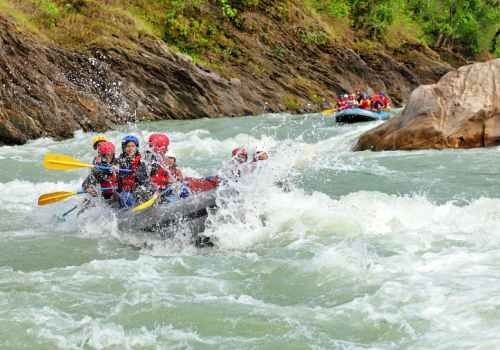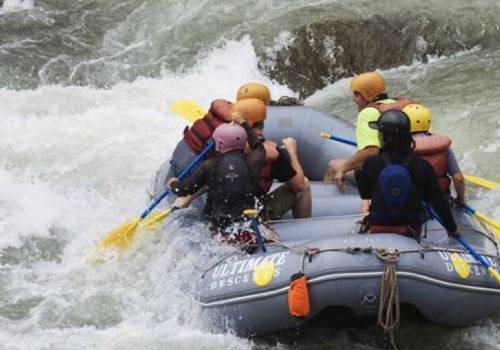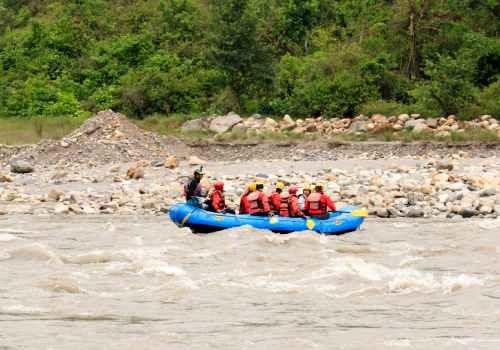‘Nepal largest and longest glacial river known as the Big Bend’
Karnali River Rafting, one of the wildest and great rivers for exciting surge of adrenaline, where you encounter large bouncy waves and series of rapids. The Karnali River is also known as the ‘Big Bend’ it flows from the glacial source of holy Mt. Kailash, located on a vast plateau southwest Tibet.
Karnali River Rafting, an adventure that leads to exploration as this river is least visited by western adventurers and explorers. Due to its remote location in Far Western Nepal, where seldom few groups of rafters run the rafting once or twice in a year in good season.
Karnali River Rafting, one of Nepal’s great rivers for rafting begins after a scenic flight and exciting drives for few days to reach the starting point of rafting.
Where all camping gear and food for a week is carried on raft, might waves and exciting rapids take you downstream to Far South Western region of Nepal with exciting thrills on Karnali River.
Starts the adventure on mighty Big Bend the Karnali River, enclosed within a sub-tropical jungle and high cliff as you paddle into a gorge.
Rafting takes you through various exciting rapids and roller coaster bouncy waves, and spending overnight in tented camps on nice sandy beaches, where our crew provides you with delicious meals, from breakfast-lunch to dinner with time to explore local farm villages of great cultural interest.
As adventure progress with hard paddling to conquer over great rapids, where white-water flows runs down over drops and holes, as our captain maneuvers the boat with his expert technical knowledge to make it more interesting and enjoyable.
Karnali River Rafting provides various many rapids but the bigger and serious is called ‘Jail House and God House’, where you will get a thrill of a lifetime experience paddling through adventurous big waves and rapids, as well enjoying picturesque river scenery with some exotic bird-life.
Rafting from mid-hills entering into deep gorge and then finally adventure compete heading down south around Terai belt, on the flat country and heavily cultivated farmland at Chisapani.
Located, South Western Nepal, near a beautifully constructed bridge that separates Bardiya and Kailali zone, from here packing all rafting equipment and then board on a vehicle for long drive back to Kathmandu.



